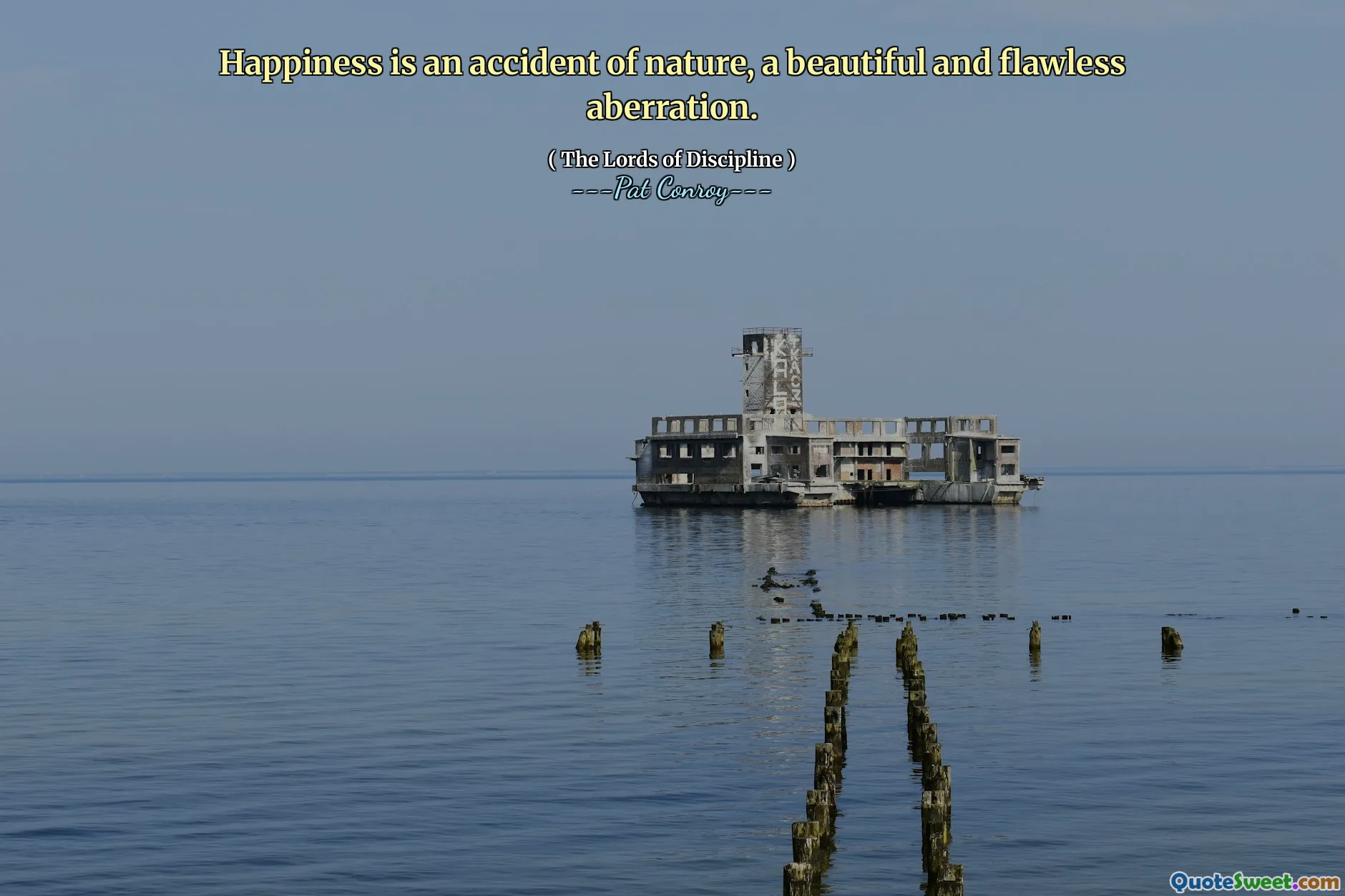
Happiness is an accident of nature, a beautiful and flawless aberration.
This intriguing quote from Pat Conroy's "The Lords of Discipline" invites us to reconsider the conventional understanding of happiness. Often, happiness is pursued as a goal — a steady state to be achieved through external circumstances or internal conditions. However, this quote challenges that notion by framing happiness as an "accident of nature," implying that it is not a constant or something that can be reliably produced. Instead, it is a rare, beautiful anomaly, something that happens almost by chance against the backdrop of life's inherent struggles and imperfections.
The phrase "a beautiful and flawless aberration" further adds depth to the idea. An aberration typically suggests a departure from what is normal or expected — something unusual or even irregular. But here, the aberration is both beautiful and flawless, highlighting that sometimes the most precious experiences in life are those that occur unexpectedly and are perfect in their moment of existence. This poetic interpretation resonates deeply because it recognizes that happiness might not be an attainable constant but a rare occurrence to be cherished.
From a philosophical perspective, the quote challenges us to appreciate the fleeting nature of happiness and to value those moments of joy without the pressure of making them permanent. It suggests embracing the unpredictability of life and finding beauty in the spontaneous bursts of positive emotion that come and go. Overall, the quote offers a profound insight into the nature of our emotional experiences, encouraging a perspective that values acceptance, mindfulness, and gratitude for the imperfections and surprises life brings.






